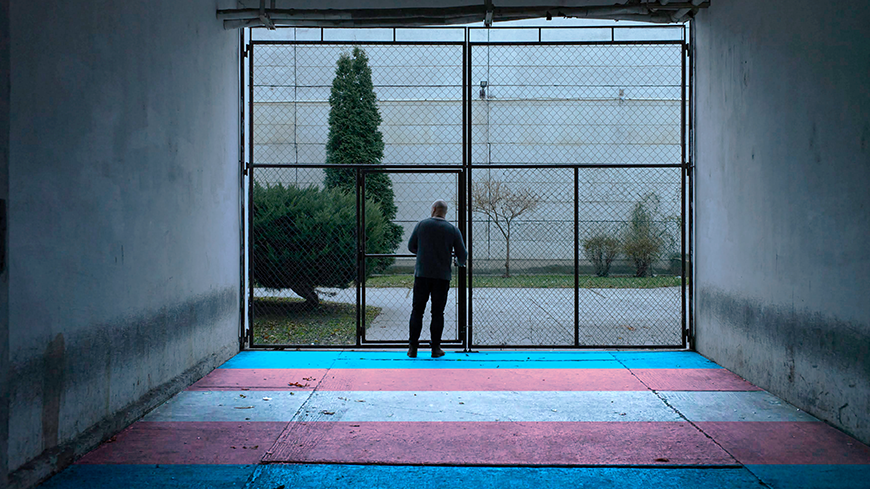The Council of Europe’s Committee for the Prevention of Torture and Inhuman or Degrading Treatment or Punishment (CPT) published on Thursday its 33rd annual report on its activities covering last year, highlighting overcrowding and ill-treatment of migrants and transgender people in prisons and other places of detention.
The committee visits places of detention in the states parties to the European Convention for the Prevention of Torture to assess how persons deprived of their liberty are treated with a view to strengthening, if necessary, the protection of such persons from torture and from inhuman or degrading treatment or punishment.
These places include prisons, juvenile detention centres, police stations, holding centres for immigration detainees, psychiatric hospitals, and social care homes. After each visit, the CPT transmits a report containing its findings and recommendations to the government concerned. During 2023, the Committee visited each of the types of places of detention.
The 2023 report reads as previous reports with a special chapter on the treatment of transgender prisoners, a highly vulnerable segment of the prison population which not always is treated with respect and protected from the risks of ill-treatment.
The CPT considers that transgender persons should be accommodated in the prison section corresponding to the gender with which they identify. The committee urges national authorities to address the risks of discrimination of transgender persons in prison and implement policies to prevent and combat ill-treatment by prison staff and inter-prison violence and intimidation targeting them.
The annual report also contains a specific reference to the possible impact of climate change on the work of the CPT, for example, in the context of heatwaves, since it can cause significant challenges to ensure adequate living conditions both for persons detained in places of deprivation of liberty but also for staff working in those places.
Overcrowding, the perennial problem
The perennial problem, however, remains overcrowding which has increased exponentially since the COVID-pandemic, said Dr Alan Mitchell, the President of the CPT, who presented the report at a virtual press conference on Thursday. Inmates are often lying on mattresses in their cells or even in the corridors.
He recalled the negative consequences that prison overcrowding has in undermining the functioning of prisons – poorer living conditions, increased tensions and violence, fewer purposeful activities and less preparation for prisoners returning to the community. The evidence of such is abundantly apparent according to the CPT.
In fact, the situation has deteriorated over the years. In 2017, The Brussels Times reported that overcrowding in European prisons remains a problem in one fourth of the prison administrations in the countries belonging to the Council of Europe. The countries with the most crowded penal institutions were Hungary, Belgium, Macedonia, Greece, Albania, Italy, Spain, Slovenia, France, Portugal, Serbia, Romania and Austria.
The situation in Belgium is worrying, as has been regularly reported in media. In Belgium and other countries the situation might have been aggravated by the influx of migrants that have had their asylum applications rejected and cannot be returned. The right-wing N-VA party proposed on Thursday to build a prison in Kosovo for undocumented migrants.
“The situation varies by country but the countries with the most overcrowded prisons tend to be the same today,” Alan Mitchell told The Brussels Times. He has identified a rising trend in prosecutors putting arrested people in remand centres and courts issuing longer prison sentences. The use of electronic bracelets for minor offences has not eased the overcrowding in the prisons.
Even if the average incarceration rate in Europe has increased in recent years, it is still far away from the rate in the US, the highest in the world. “Prison should always be a last resort,” he underlined.
Foreign nationals and prisoners of war
Furthermore, the question of migration and how to treat foreign nationals continues to be a subject of debate across Council of Europe member states. “The toxic public discourse surrounding foreign nationals does have a bearing on the way in which these persons are treated when deprived of their liberty.”
The concerns raised by the CPT in its 2022 report on informal forced removals at borders (read pushbacks, editor’s remark), often accompanied by violence, remain. Immigration detention, will continue to be a focus of the Committee.
The CPT decided in October 2023 that it was appropriate to resume its work in Ukraine and to confirm that, in spite of the war, the protection of human rights is upheld in places of deprivation of liberty. The visit went well, and the CPT intends to pursue its dialogue with the Ukrainian authorities in 2024. Other countries currently at war do not even allow the International Red Cross to visit prisoners of war.
“It is a signal of the strength of a democratic country to treat persons deprived of their liberty with respect and dignity during a period of war and to continue to permit external monitoring,” Alan Mitchell commented.
The current recommendations on good prison standards – the European Prison and Probation Rules issued by the Council of Europe - go some way in influencing member states to improve the conditions, especially together with monitoring mechanisms. Does the CPT favor a binding European Prison Charter?
“We hope that the rules together with the UN prison standards are helpful to the member states,” he replied, admitting that the prison rules are soft rules for the benefit of both inmates and prison staff.
M. Apelblat
The Brussels Times

